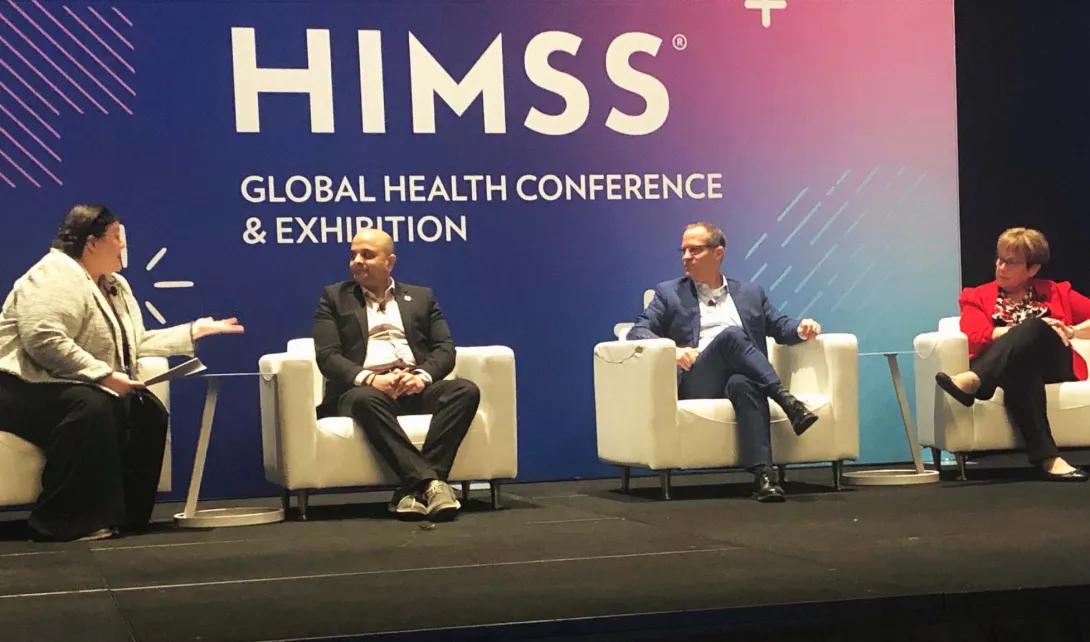
From left: Oriana Beaudet of the American Nurse Association Enterprise; Sameer Sethi of Hackensack Meridian Health; Adam Landman of Mass General Brigham; and Crystal Broj of the Medical University of South Carolina, speak at HIMSS25.
Photo: Susan Morse/Healthcare Finance News. HIMSS
LAS VEGAS - The new Emerge Innovation Experience that debuted at HIMSS25 here featured speakers from health systems who talked about the importance of finding the right business partner.
"A good partner is one who wants to be part of your team, has skin in the game," said Crystal Broj, enterprise chief digital transformation officer at the Medical University of South Carolina. They have the attitude, she said, "if you're successful, we're successful."
Some vendors think they can meet and get a contract within a couple of hours, but it takes much longer, Broj said.
"It takes months, not just one meeting," she said.
"Healthcare and health tech is hard," said Adam Landman, an emergency physician and chief medical information officer for health information innovation and integration at Mass General Brigham. "It helps when meeting with someone who understands that."
Partnership needs to be aligned to weather storms, Landman said.
Oriana Beaudet, vice president Innovation for the American Nurse Association Enterprise, moderated the panel "Innovation in Action" that included Landman, Broj and Sameer Sethi, chief data and analytics officer at Hackensack Meridian Health.
Healthcare is suffering financially, amid a workforce shortage, panelists said.
Those systems making a 3% margin are doing well, Sethi said.
The cost of AI is increasing, which could reduce margins even more, he said.
"There should be a CPT code for AI," Sethi said. With AI, he said, "it takes awhile to use it in the right way."
Hospitals need to be sure that the solution is solving the problems that need solving, panelists said.
"How do you incorporate it in the workflow?" asked Broj. "Nobody wants to use a tool that they feel stupid using."
The ROI must include quality improvement, saving time for doctors and nurses, said Landman.
"It's a really challenging time, particularly with all the changes," Landman said. Providers are waiting to see if telehealth and home hospital waivers will be extended past March 31.
"Many of these are existential threats," Landman said. "If Medicaid is reduced, if Medicare is reduced, it will impact those with razor thin margins."
For some health systems, there is a cognitive dissonance, said Broj. It may be 2025, but staff could be walking through the door of a hospital that has tech systems from 1990.
"Right now, we're in the space of bridge technologies," she said.
Money is needed for the training for the workforce to keep up with the changes.
"What needs to be done," said Sethi, "is creating an orchestration project for all of these technologies."
Email the writer: SMorse@himss.org